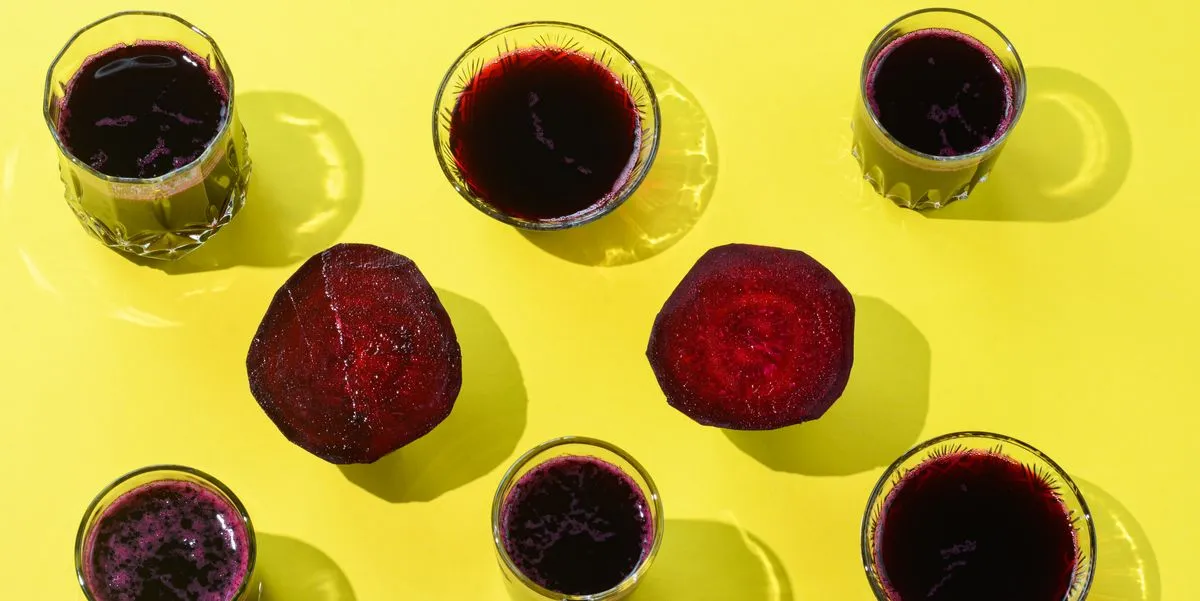
A recent study has shed light on how a common vegetable, the beet, may play a significant role in reducing blood pressure among adults. Researchers discovered that when older participants consumed beet juice, there was a notable change in their oral bacteria, leading to a decrease in blood pressure. This article delves into the findings of this new research and what it means for those concerned about hypertension.
High blood pressure can be influenced by various factors, including exercise frequency and stress levels. Emerging research suggests that you can counteract elevated blood pressure with the inclusion of beets in your diet. This crucial finding comes from a study published in the journal Free Radical Biology and Medicine, which aligns with numerous other studies highlighting the benefits of beets. But what makes beets particularly beneficial? How much do you need to consume to experience these health benefits? Let’s explore this with insights from leading experts in nutrition and cardiology.
The study involved 39 participants under the age of 30 and 36 older adults in their 60s and 70s. Participants underwent two distinct two-week phases: one where they consumed nitrate-rich beetroot juice daily and another where they drank a placebo with nitrates removed. Nitrates, naturally occurring compounds found in soil, water, and vegetables, convert to nitric oxide, known for its heart-health advantages. The researchers also conducted a two-week “washout” period to reset participants' bodies between phases. They utilized bacterial gene sequencing to analyze the oral microbiome changes and monitored blood pressure readings.
The results revealed significant changes in the participants' oral microbiome after consuming the nitrate-rich beet juice, with notable differences between the younger and older groups. The older participants experienced a reduction in the oral bacteria Prevotella and an increase in beneficial bacteria like Neisseria. Notably, the older group, which had higher initial blood pressure readings, saw their blood pressure decline after consuming the beet juice, while no such decrease was observed after the placebo phase.
This isn’t the first time that beets have been linked to lower blood pressure. A scientific analysis published in 2022 indicated that participants experienced improved blood pressure levels after consuming varying amounts of beet juice daily, ranging from 70 to 250 milliliters (approximately one cup). Another analysis in 2024 confirmed a “significant effect” on systolic blood pressure lasting up to 90 days after regular beet juice intake.
So, how do beets work their magic? According to Sonya Angelone, RDN, a San Francisco-based nutritionist, “Beets contain nitrates which are converted to nitrites by good bacteria in the mouth.” This nitrite-rich saliva is swallowed and converted to nitric oxide in the stomach. Dr. Cheng-Han Chen, an interventional cardiologist, explains that this nitric oxide enters the bloodstream, helping blood vessels relax and widen through a process known as vasodilation, which ultimately lowers blood pressure.
The balance of good bacteria in the mouth is crucial for this conversion process. Christy Brissette, MS, RD, emphasizes that without the appropriate oral microbiome, the blood pressure-lowering effects of beets may not be realized. A diet rich in inorganic nitrates from beets and leafy greens may also inhibit the growth of harmful bacteria in the mouth, further contributing to blood pressure management.
Beyond their blood pressure-lowering properties, beets are nutrient powerhouses. They are excellent sources of fiber, promoting digestive health. Additionally, they are packed with antioxidants that help reduce inflammation and lower the risk of chronic diseases. Beets also contain folate and potassium, both of which are beneficial for heart health. Furthermore, Angelone notes that they may enhance athletic performance by improving mitochondrial function, the energy-producing component of cells.
To reap the health benefits of beets, it’s recommended to consume about one cup of this versatile vegetable almost daily. However, if you have high blood pressure, Brissette advises consulting with your healthcare provider regarding lifestyle changes to manage your condition. While beets and beet juice can complement your hypertension treatment, they should not replace prescribed blood pressure medications, as Dr. Chen points out that the blood pressure reductions are modest yet measurable.
It's worth noting that beets aren't the only vegetable rich in nitrates. If beets aren't your preference, consider incorporating other nitrate-rich vegetables like spinach, celery, and kale into your diet to enjoy similar health benefits.